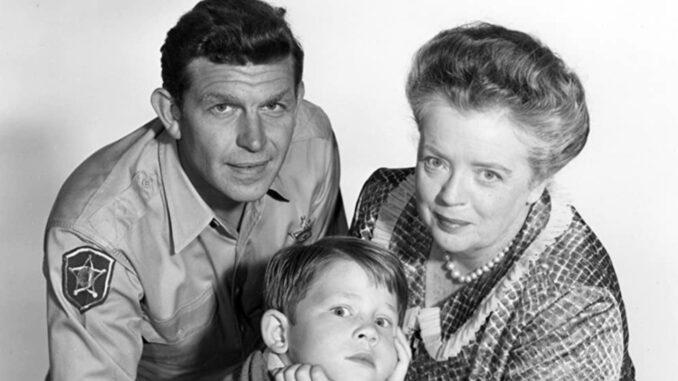
The kitchen, Aunt Bee’s undisputed sanctum, usually hummed with the industrious cadence of her day. The scent of cinnamon and lemon polish perpetually mingled, a testament to her ceaseless devotion. Her hands, often dusted with flour or stained with berry juice, were never still. For Aunt Bee, "family first" was a creed etched into every gleaming countertop, every perfectly darned sock, every meticulously planned supper. She lived it, breathed it, and presented it as a tangible, comforting order to the world.
Yet, there was a subtle, almost imperceptible tension beneath this veneer of domestic perfection. Her love, vast and unwavering, sometimes manifested less as quiet presence and more as frantic activity. She was a master of the doing – the providing, the mending, the organizing – believing deeply that these acts were the purest expression of her devotion. Her gaze, though kind, often seemed to sweep over the heads of her family, focused instead on the next chore, the next community bake sale, the next church committee meeting where her unique brand of practical competence was indispensable. She’d listen, nodding thoughtfully, while mentally compiling a grocery list or mentally reorganizing the linen closet. Her family’s needs were always met, but sometimes, their presence felt less a priority than their upkeep.
The moment, when it finally arrived, wasn’t born of a grand crisis or a dramatic confrontation. It was, instead, a quiet whisper in the late afternoon. Opie, usually a whirlwind of boyish energy, sat slumped on the porch swing, a small, worn book clutched in his hands, his usually bright eyes downcast. Aunt Bee, hurrying past with a basket of freshly starched linens, paused. She registered his stillness, his unusual quietude. Her mind, already buzzing with the evening’s meal prep, almost dismissed it. He’s just tired, she thought, boys get like that.
But then, a small, almost inaudible sigh escaped him, so profound in its childish sorrow that it snagged at something deep within her. It wasn’t a cry for help, not a demand, just the quiet exhalation of a small, burdened soul. For the first time, perhaps in a long time, Aunt Bee didn’t think about the laundry. She didn't think about the pot roast. She didn't think about the Ladies’ Auxiliary. She simply saw him. Not Opie, the boy who needed clean clothes and hot meals, but Opie, the vulnerable heart in front of her.
The laundry basket slipped from her grasp, landing with a soft thud on the porch floor. The perfectly folded shirts lay askew, an unprecedented disruption to her carefully ordered world. She didn't pick them up. Instead, she walked slowly, deliberately, towards the swing. She sat down beside him, the old chains groaning under their combined weight. She didn't ask "What’s wrong?" or "Are you hungry?" She simply sat, her usual industrious hands resting, palms up, in her lap. She let the silence settle, a new, unaccustomed presence between them.
Finally, Opie, sensing her complete stillness, her absolute focus, looked up. His eyes, rimmed with unshed tears, met hers. And for the first time in what felt like forever, Aunt Bee looked back with nothing but undiluted, unhurried attention. She saw the story in his eyes – a small slight at school, a misunderstanding with a friend, the petty hurts that loom so large in a child’s world. She didn’t offer solutions or platitudes. She just listened, her gaze unwavering, a silent testament to her presence. She took one of his small, grubby hands in hers, her thumb tracing patterns on his knuckles.
In that powerful moment, the scent of burning biscuits from the kitchen went unnoticed. The phone, ringing insistently from the hall, was unheard. The pristine order of her home, her meticulously maintained schedule, all faded into irrelevance. The world outside the porch swing ceased to exist. All that mattered was the quiet connection, the shared breath, the unburdening of a child’s heart into the open, uncritical space provided by a truly present love.
It was a reorientation, a profound shift. Aunt Bee didn't stop being the industrious, capable woman Mayberry knew and loved. But from that day forward, the hum in her kitchen held a slightly different note. The scent of cinnamon and lemon polish was still present, but now, it was underscored by the quieter, more resonant aroma of presence. She still did for her family, but now, she was with them, truly and completely. She had finally understood that "family first" wasn't merely about providing sustenance and order, but about offering the precious, unquantifiable gift of oneself, wholly and without distraction, in the simple, powerful act of being there.